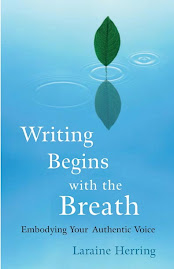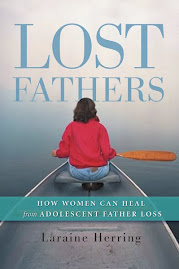"All artists are willing to suffer for their work. But why are so few prepared
to learn to draw?"- Banksy
to learn to draw?"- Banksy
It's April in academia. The birds are singing. The snow is still falling. The flowers are blooming (and freezing). And yes, as usual, it's the month of dead and dying family members from the sweet mouths of our students. If you've got a kid in college, be careful when you start the car. But most of all, April is the month when students' expectations crash and burn in the pyre of self-loathing and (perish the thought) work.
Here's what happens. The semester has almost ended (yes, yay, jumping in the halls, dancing in the streets, please oh please be over) and the students, those who do care and who have been coming to class and who have been learning and struggling, come face to face with the truth of: I haven't "gotten it" yet.
They think writing is something one can "get" in fifteen weeks. Nay, sooner, since they have been writing for 20, 30, 40, 50 years by this point. How hard is it to arrange words? They had visions of where they would be by now, and although those who've shown up and participated have indeed made lots of progress, it doesn't look like what they thought it would.
It never does. The tricky net of expectations has strangled many before them and will strangle many more after them. A semester is such an arbitrary amount of time, and it is such an insignificant amount of time in a life, that it seems impossible that we can teach anything at all of substance in a 15 week period. The art of writing is not a 15 week program. Yes, you can learn some things about craft in 15 weeks. Yes, you can read some forms of literature you might never have looked at before, and yes, you can stick your toes into the snake-infested swamp of revision. But you may find at the end of the semester you feel like you're in a worse place than you were when you started.
You're not. You're just beginning to realize what you don't know and what you didn't even know to ask about. You're just starting to see the ways literature can be written and read. You're just starting to see that writing is not a task ... it is a path. And for some of you, that ain't what you signed up for.
I get it. I really do. You're accustomed to outcomes and measurable skill sets. You're a bright person. You should be able to "get" this. Writers know that writing is a lifelong pursuit. That there is no one-day epiphany that solves every story you'll ever write. Each story is a teacher. Each poem a Zen master. Writing one story well guarantees nothing for any future story. Writing one story poorly does not sentence you to a life of bad writing.
If I had all the time in the world to teach writing in the way I truly felt was best, and if I had only students who were sincere in their educational pursuits, we would begin with the sentence, and we would not leave the sentence until we understood the nuance of the comma, the position of the verb. I haven't figured out any practical way to teach like this. Writers must come up with every aspect of the work first before learning the craft. To only address theory without practice is to spin and spin and spin. So instead, we write drafts and we talk about them and only after many years of writing practice do most writers come to realize the value of word choices, sentence structures, and paragraph lengths. The subtlety of rhythm contained within the way an author puts a sentence together. The places where the author left space for the reader to breathe. These things appear second nature when you read, but they are the result of thought and commitment on the part of the writer.
Students, if you're serious about "being a writer", remember these things:
- You will always be a beginner.
- There will always be people "better" than you.
- You will always be alone with the blank page. No one can be there with you. Figure out how to be OK with that.
- Take time away from writing. You can't produce twenty-four hours a day.
- Remember the joy and sense of play that first brought you to language. If you lose that, you're adrift.
- Study sentences. Study grammar. Look at books critically through the lens of a writer, rather than a reader. Start to get out of your own way when reading. It doesn't matter whether you like or don't like the work. Look at how the work was put together. That'll give you insight into craft.
- Practice detachment from your writing. The tighter you attach to it and to your construct of what it means, the less chance you have of truly developing it into something that can breathe on its own.
- There's no mastery - just deeper and deeper questioning. The more open you are to the questions, the more ease your writing practice will provide. If you attach and hold tight to wanting to know things and figure everything out, eventually you'll exhaust yourself. There's no figuring out. There's just experiencing and observing.
As you walk the path with your writing, hold its hand loosely. Notice the wind and the earth beneath you, and let this observation be enough.












5 comments:
What a fabulous, inspiring post! The one I have the most difficulty with is reading as a writer. If the book is good I forget and get lost in the story. By the time I finish I've lost the nuances of the writer's technical skill.
Going to retweet this!
Judy (South Africa)
Hi Laraine,
I am not specifically responding to your post...I am currently reading your book, Writing Begins with the Breath. Wow! You inspire me to greatness!
I just wrote a post about how your book has affected me. Out of respect, I also linked the post to your site and your name to you bio. I just want to say thank you.
I am just a mom with a bunch of kids who has lived a hard, yet joyous life and has something to say. My lack of professional writing education often intimidates me, but you have unleashed my creative inner being.
Thank you. From my heart to yours, Joy Nelson
Dear Joy, Thank you so much for your note. I am always so grateful to hear from readers. I wish you all the best with your writing!
Laraine
Dear Laraine,
Sorry, but as I write I'm all thumbs and toes and a bundle of nerves. I don't normally post responses but I just had to thank you for writing The Writing Warrior. I found it this summer at Borders, I will miss the store too, and I have to say that your influence has done me so much good. I was published in 2002 by a non credible publisher and the result nearly forced me to give up on writing completely. I managed to get back in the saddle and have been at the craft along with reading and studying and all the rest for a few years now.
I have found that writing is in my blood, though sometimes more like a virus than joy, but still it is something I cannot give up. While reading the Writing Warrior I deceded to write my memoirs and the purging which has been done is soul cleansing. I still have those days, but at least now I know where I belong and where I find the most joy.
Thank-you ever so much!
Dear JM,
Thank you so much for taking the time to comment. I am sorry to hear of your experience w/the publisher. I wish I could say it was an uncommon one, but I don't think that's the case. The most important thing is your relationship with and to your writing. You have the power to navigate that one. Make it worth it! :-)
All best,
Laraine
Post a Comment